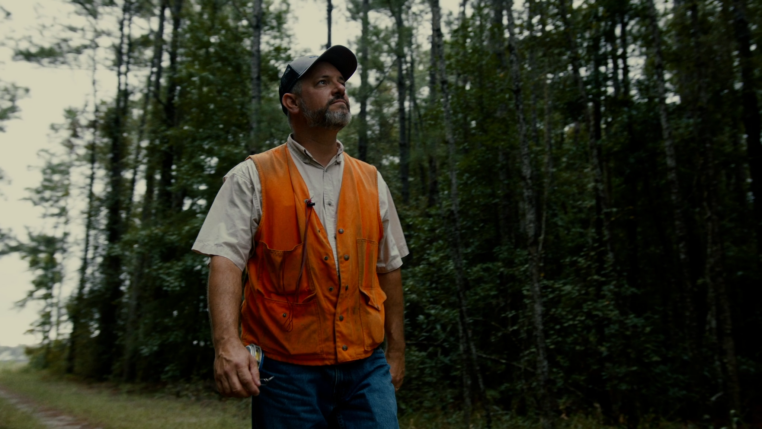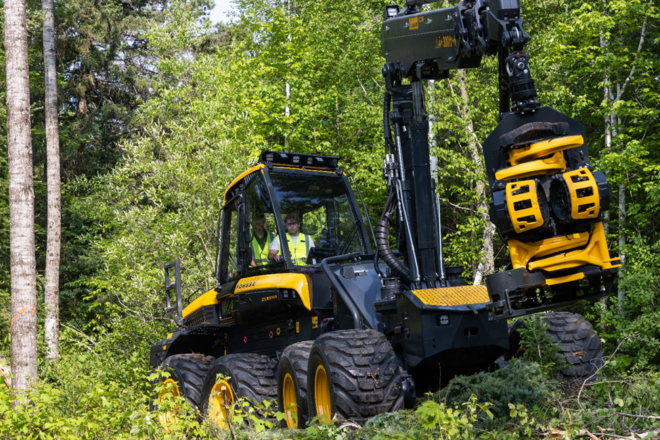Training Effective Stewards Of Our Forests

Effectively stewarding our shared forest resources means applying diverse management strategies to realize a mosaic of outcomes across the landscape. Diverse strategies call for diverse training. Shasta College is honored to do its part.
Shasta College’s Heavy Equipment Logging Operations (HELO) program focuses on building a foundational skillset required for safely operating purpose-built logging equipment while expanding students’ perspective to ensure their understanding of the impact their work has on the landscape.
Since its launch in Fall 2019, HELO faculty and staff have taken every opportunity to reflect on and revise its forest operations training. By consistently soliciting and implementing feedback from employer partners, Shasta College has refined its original two-semester certificate program into a single-semester, academy-style cohort training model.
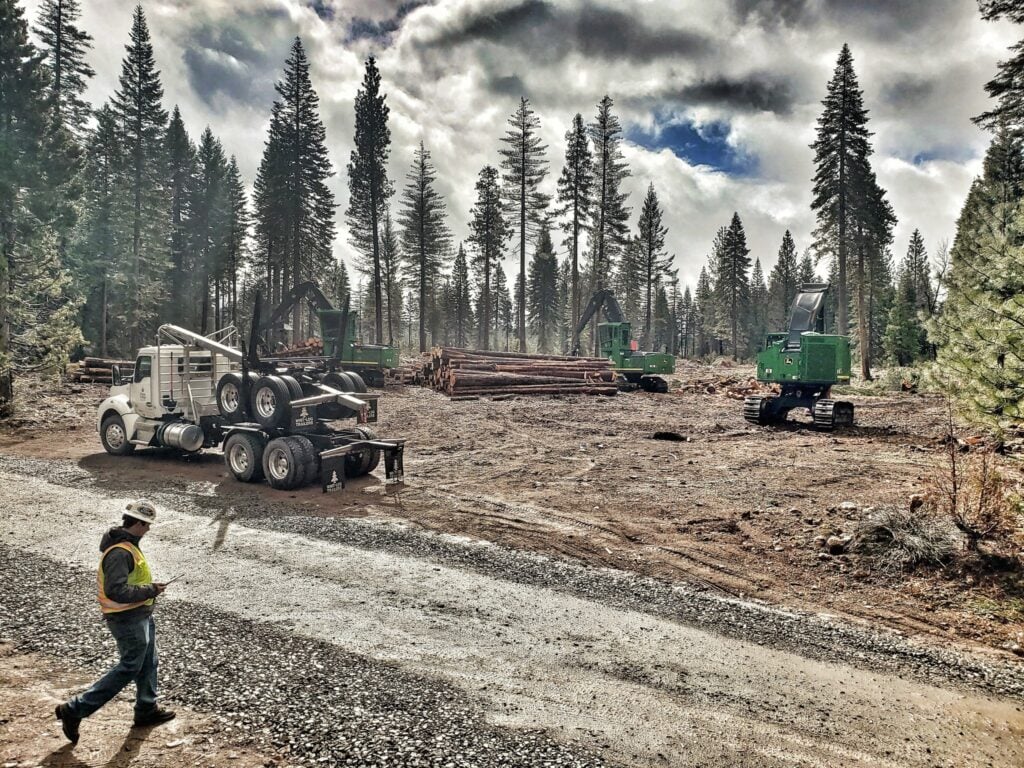
HELO provides ten students each semester over 400 hours of progressively intensive operator training on full-scale mechanized logging equipment. Mondays, Wednesdays, and Fridays will find students learning on 74,000 acres of Sierra Pacific Industries (SPI) forestland just outside Redding, California. Students participate in foresty-related and job-readiness classroom instruction on Tuesday and Thursday of each week.
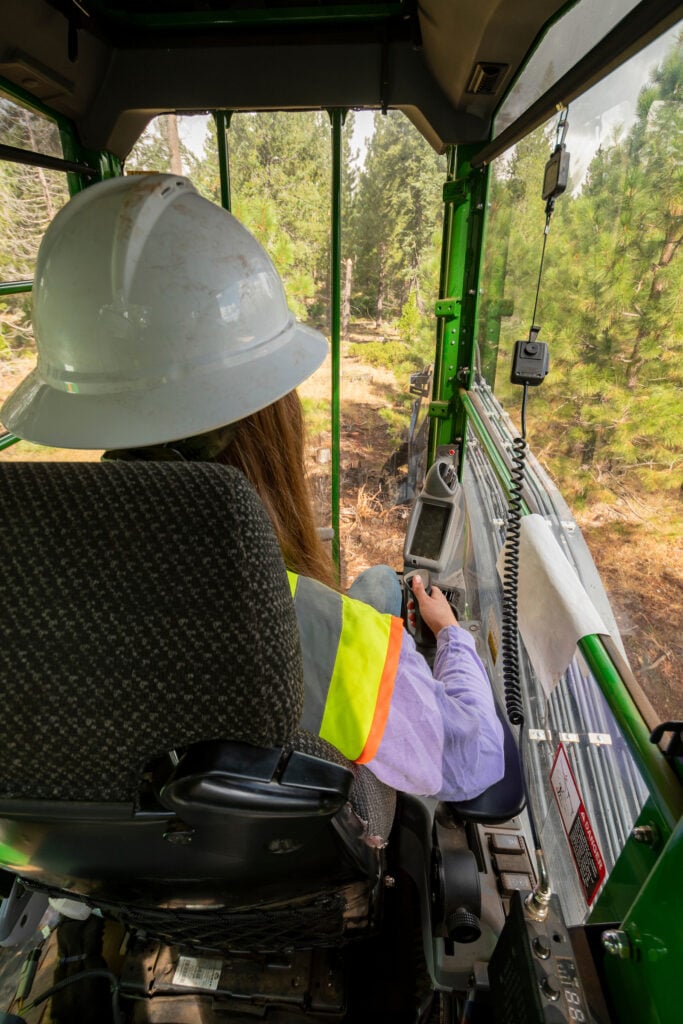
Operating hours teach students the HOW. Their Introduction to Forest Operations helps them understand the WHY behind the responsible implementation of Timber Harvest Plans (THPs), Vegetation Management Plans (VMPs), and similar prescriptions in California.
At the end of each semester, HELO and California Registered Apprenticeship for Forest Training (CRAFT) co-host a student skills showcase. Employer partners observe students on each piece of equipment and have the opportunity to engage with them individually. This skills-based demonstration of the curriculum’s success continues to provide industry stakeholders with opportunities to give feedback and directly participate in the refinement and improvement of our training.
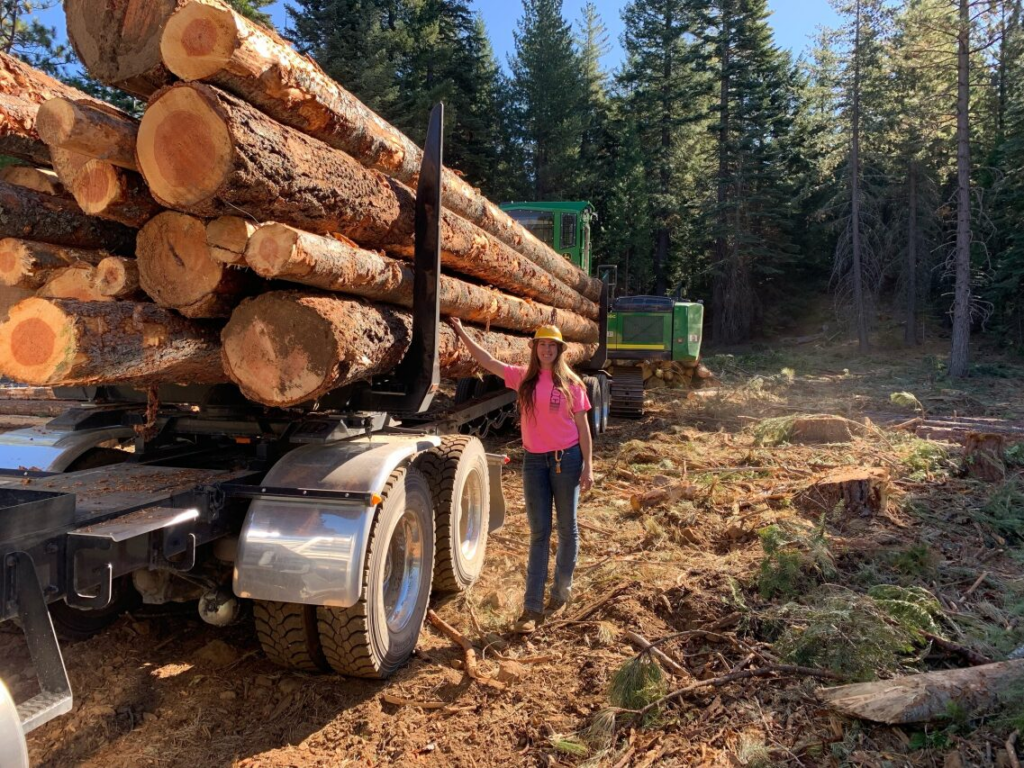
As a California Community College, our mission includes providing equitable access across diverse and non-traditional student populations. Women, veterans, and justice-involved learners have all successfully completed HELO and are putting their skills to use, maximizing their earning potential and finding fulfillment in contributing to responsible stewardship of our forested landscapes.
HELO enjoys full cohorts with waitlists. The Spring 2023 cohort boasted a 100% job placement while the Fall 2023 cohort is anticipated to achieve similar success once logging season ramps back up in our region.
The implementation of HELO has been made possible by three grants spanning an aggregate performance period of six years through California Climate Investments and CAL FIRE’s Forest Health program. With a specific focus on recruitment, job placement, and removing barriers for individuals seeking training in the forest sector, HELO received additional funding as a contributing partner in the California Resilient Careers in Forestry initiative.
As a concentric network of committed “dirt professionals” successfully building an expanded forest resiliency workforce, we also build confidence with our stakeholders. While there is general consensus and passionate commitment all around for the importance of training those who will lead future stewardship efforts, those of us doing the work sometimes feel the pressure of expiration dates attached to funding streams. We feel the weight of the funding responsibility for both the community of individuals who are waiting to enroll in this training and our industry partners who have contributed countless hours of their own sweat equity because securing the future of our forests is what makes them tick.

Shasta College has benefitted immensely from positive engagement with our partners. In turn, and most importantly, our students have benefitted even more. We are excited to be engaging in a wider conversation with a burgeoning network of training programs across the country who are experiencing many of the same funding pinch points. This work is too important. This training is too critical. We will find our path forward.

As a National Forest Products Training Coalition, we are exploring how we may make the best use of our collective insights toward developing collaborative solutions. To bring it full circle, you might even say we are consolidating our efforts to diversify our strategies, stewarding the development of an effective mosaic of successful operators across our national forested landscape.
